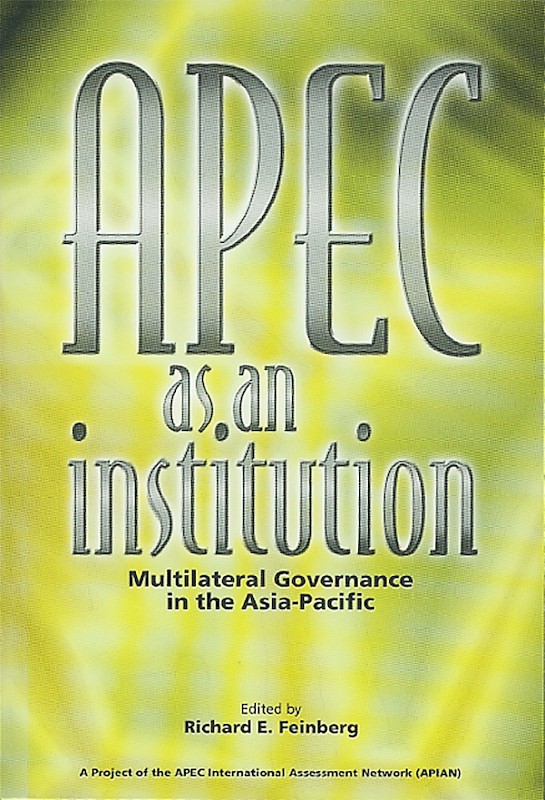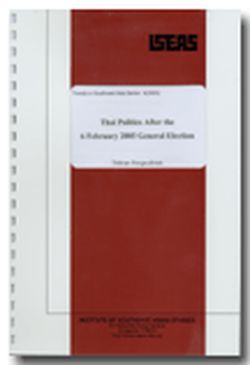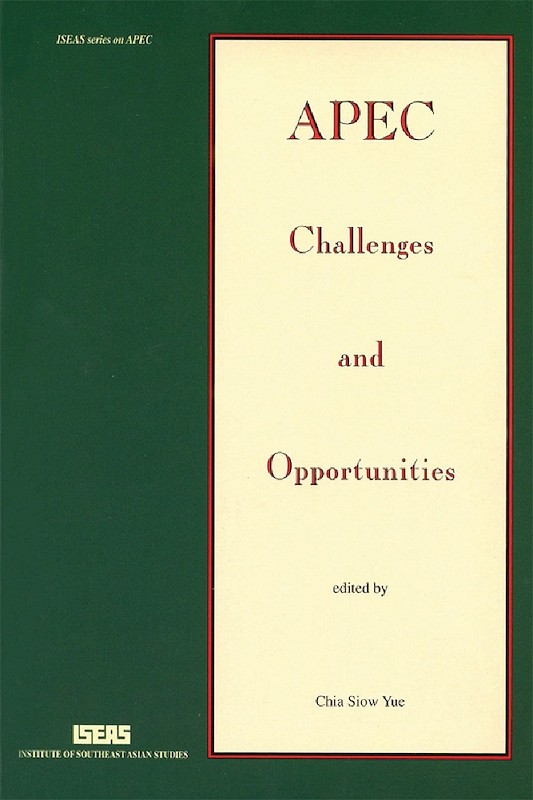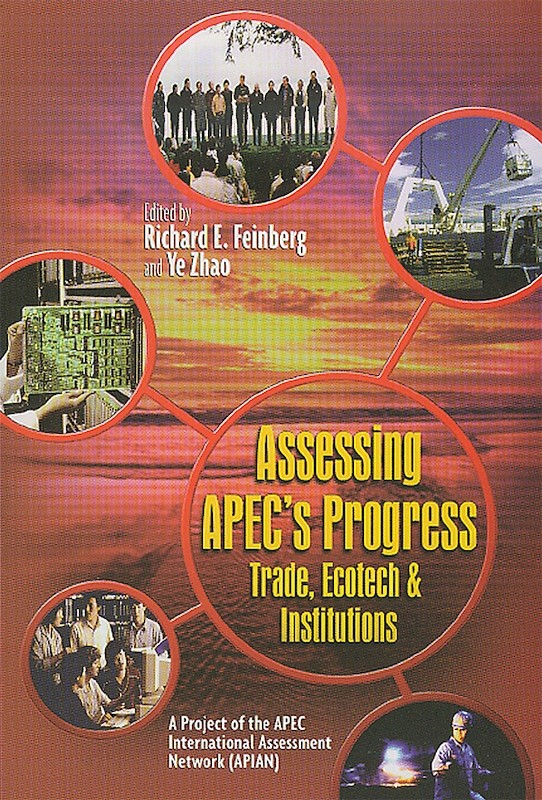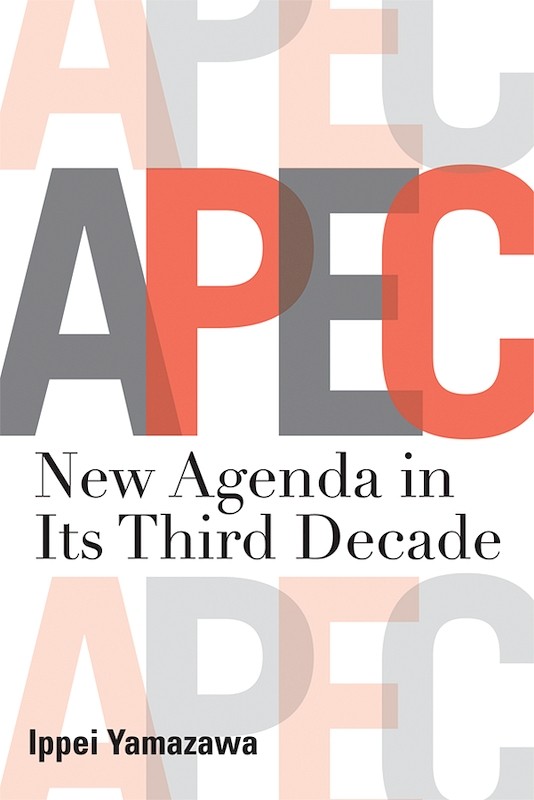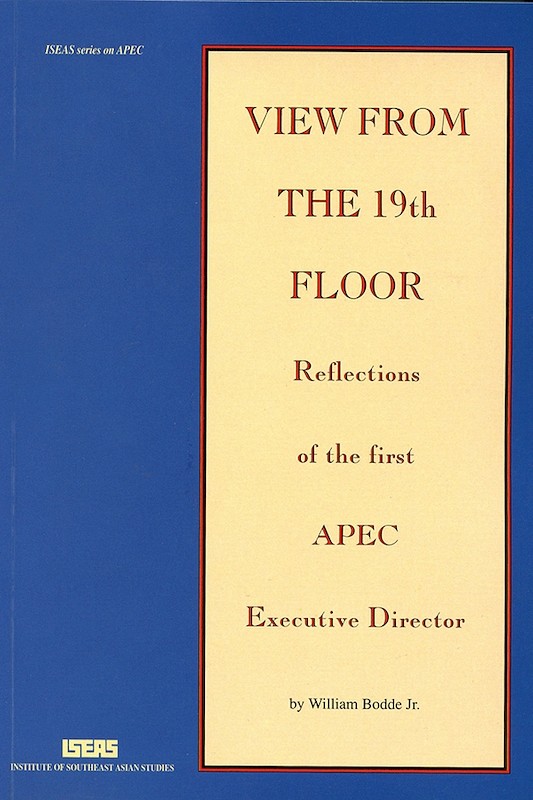APEC at 20: Recall, Reflect, Remake

Date of publication:
2009
Publisher:
Institute of Southeast Asian Studies
Number of pages:
120
Code:
APEC9
Hard Cover
ISBN: 9789814279260
Reviews
"This very nice book is a brief but substantive introduction to and evaluation of the Asia-Pacific Economic Cooperation (APEC) forum over its first 20 years. APEC is committed to non-discriminatory 'open regionalism'; its core objectives is to achieve free and open trade and investment liberalisation for its members. This is an excellent primer: succinct, positive, sceptical and straightforward. The eight largely complementary chapters are by outstanding academics and policy makers: Andrew Elek, Peter Drysdale, Charles Morrison, Man-jung Mignonne Chan, Zhang Yunling and Shen Minghui, the late Hadi Soesastro, Ippei Yamazawa, and Tommy Koh with Lee Tsao Yuan and Arun Mahizhnan. They provide an objective evaluation of APEC's achievements, weaknesses and failures, tracing its evolution and proposing constructive changes to its architecture and policies. The subtitle -- 'Recall, Reflect, Remake' -- well defines the book's intellectual thrust. This volume provides an excellent basis for thinking about APEC's future relevance and role. A nice plus is its visual elegance, notably the 35 charming colour photographs, including those of summit leaders in national attire at their annual meetings" (Bulletin of Indonesian Economic Studies).
About the publication
Spanning 20 years of history, the achievements of APEC may seem uneventful in the eyes of some observers. Yet careful deliberation will point to APEC's many remarkable high points as well as some of the challenges. The foundations of APEC were set in place about 40 years ago based on the achievements of the Association of Southeast Asian Nations (ASEAN) and the Pacific Economic Cooperation Council (PECC). One of the cornerstones of APEC's vision is to achieve a free and open trade area among its member economies. This vision is anchored in the Bogor Goals that remain the centrepiece of the APEC process. The Bogor Goals represent a cause for celebration as well as angst. Celebration because the region has moved towards achieving a much more liberalized environment of trading and investment since 1989, angst because the deadlines for achieving the goals have not yet been fully realized. Today, APEC embraces many of the world's dynamic developed and developing economies that are better poised to meet the new challenges of this century. For those seeking to get a quick sweep of APEC, this book recalls, reflects and provides enough food for thought on the possible remake of APEC. The chapters are carefully written by experts who have been directly involved in the APEC process one way or another. The invaluable insights serve to place the whole APEC process in a balanced perspective, yet with candid deliberations.
Contents
-
APEC at 20: Recall, Reflect, Remake
[Whole Publication, ISBN: 9789814279277] -
Preliminary pages
-
1. APEC: Genesis and Challenges, by Andrew Elek, author
-
2. APEC's Origins and its Future, by Peter Drysdale, author
-
3. Four Adjectives Become a Noun: APEC, The Future of Asia-Pacific Cooperation, by Charles E Morrison , author
-
4. APECs Eye on the Prize: Participants, Modality, and Confidence-Building, by Mignonne Man-jung Chan, author
-
5. APEC: Taking Stock and Looking Ahead, by Zhang Yunling, Shen Minghui, authors
-
6. Revamping APECs Concerted Unilateral Liberalization, by Hadi Soesastro, author
-
7. APEC at 20: Assessment of Trade/Investment Liberalization, Facilitation and Ecotech Activities, by Ippei Yamazawa , author
-
8. Integrating the Business Community in the APEC Process: Genesis of the Pacific Business Forum, by Tommy Koh Thong Bee, Lee Tsao Yuan, Arun Mahizhnan, authors
-
Appendices
-
Index

